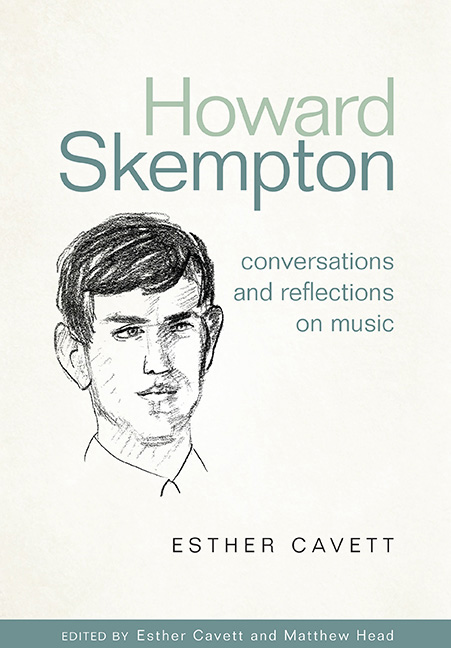Book contents
- Frontmatter
- Dedication
- Contents
- List of illustrations
- List of contributors
- Preface
- Roles and acknowledgements
- Introduction
- Editorial conventions
- Timeline
- Chapter One Histories
- Conversation One: Childhood and teenage years
- Reflection One: Music and/as home
- Chapter Two Influences
- Chapter Three Pattern and shape
- Interval: Previously unpublished manuscripts
- Chapter Four Influencing
- Chapter Six Narrative and closure
- Appendix One Authorized worklist
- Appendix Two Discography of first commercially distributed recordings
- Select bibliography
- Index
Conversation One: Childhood and teenage years
from Chapter One - Histories
Published online by Cambridge University Press: 10 September 2019
- Frontmatter
- Dedication
- Contents
- List of illustrations
- List of contributors
- Preface
- Roles and acknowledgements
- Introduction
- Editorial conventions
- Timeline
- Chapter One Histories
- Conversation One: Childhood and teenage years
- Reflection One: Music and/as home
- Chapter Two Influences
- Chapter Three Pattern and shape
- Interval: Previously unpublished manuscripts
- Chapter Four Influencing
- Chapter Six Narrative and closure
- Appendix One Authorized worklist
- Appendix Two Discography of first commercially distributed recordings
- Select bibliography
- Index
Summary
EC: In this first Conversation, I'd like to find out more about your life prior to and including your gap year [1966–67] after leaving school: what was going on in addition to your music and whether we can uncover something of where your “instinct” to compose came from.
Can I begin by asking why it was decided that you were going to learn the piano? Was there a piano in the house? Were your parents interested in music? Was there any other instrument in prospect?
PLACE IN THE FAMILY
HS: I'm the middle of three brothers [Trevor b. 1945, Keith b. 1949], and all three of us started playing the piano at the age of seven or eight. I think that was due to my mother [Leslie, nee Rowland, 1921–2005]. She was very interested in art and I think she thought it was almost a social grace to be able to play the piano. And so, when [in 1955] we moved from the local primary school to the prep school in Birkenhead, we each started with a lady called Mrs Locke. It was a kind of rite of passage. It wasn't very common, there was just a handful of us learning piano at school at that time. There was an upright piano at home. My parents bought that so we could have something to practise on. My mother could play a little, my father [Ivor, 1920–1990] was very musical, but could only play by ear. I was the one who took to playing it, and in fact was clearly very ambitious from the outset. For example, I was playing [Felix] Mendelssohn's Songs Without Words within a year or two of starting to learn. We had no exams; I think the idea was that we should learn it simply for our own amusement. After all, none of us was going to be a professional musician. My first attempts at composition began soon after I started learning the piano. I wrote a piece called Galloping Horses and I still have the original score. There were other pieces at that time, not only for piano but for recorders, or for voices. But nothing of any substance and there is no evidence of the mature composer in these early scraps.
- Type
- Chapter
- Information
- Publisher: Boydell & BrewerPrint publication year: 2019



